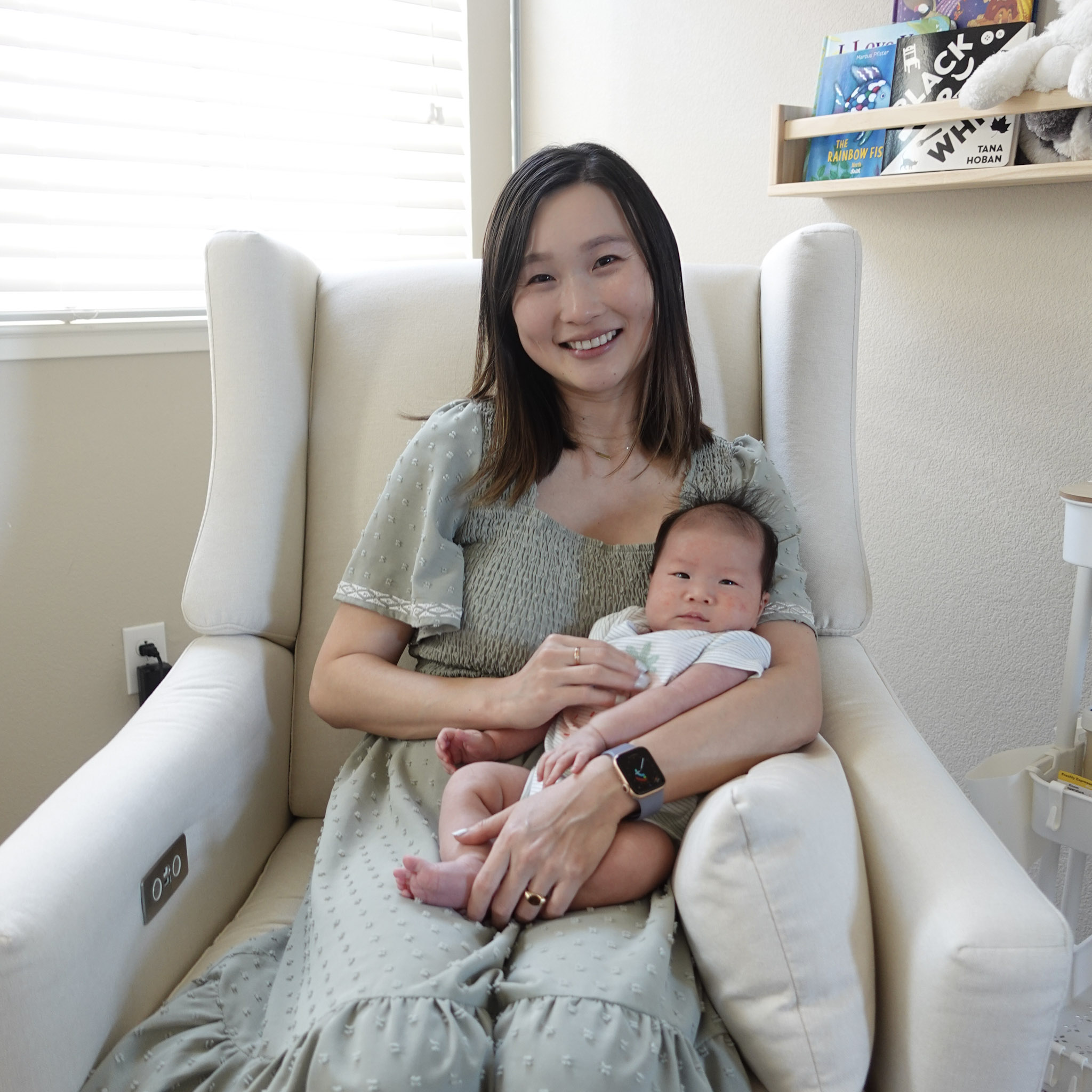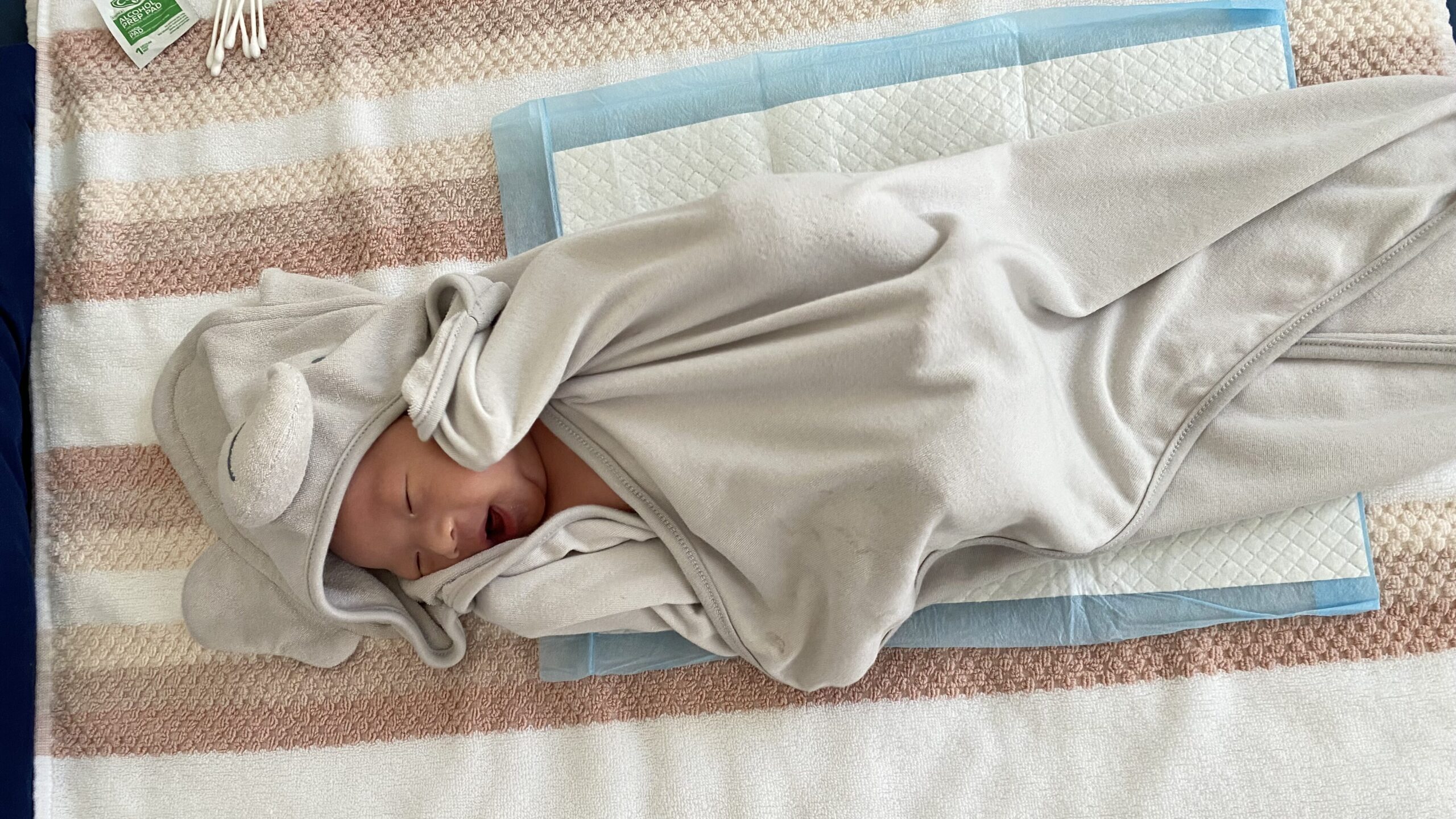
When I was 3 months pregnant, my mom started looking for a Chinese confinement nanny to support us during the first month postpartum. I told her we didn’t need one and it was too early to start looking anyway, but I am so glad we hired one. After searching for weeks through her nanny-specific WeChat groups, she finally found some great options. We interviewed three of them before deciding to go with one. We got lucky and ended up absolutely loving our confinement nanny.
But first, what’s a Chinese postpartum confinement nanny (yue sao in Mandarin)? In Chinese culture, there is a postpartum “confinement” period for about 30 days. During this time, the mother is to stay at home to focus on rest and recovery. Another important aspect of this experience is the nutrition for mom. There are many traditional Chinese ingredients and nutritional guidelines for new mothers to aid in both recovery and lactation.
The confinement nanny is a live-in who helps the new parents during the confinement period with caring for the baby round the clock and caring for the new mom. As you can imagine, this tremendously helps both the mom and dad. It also relieves the burden from the grandparents of the newborn, who are often expected to help during this time.
The nanny typically helps with all of these tasks:
- All cooking and dishes for the new parents
- Helping the mother adjust to breastfeeding and unplug milk ducts when needed
- Holding the newborn to sleep
- Tracking baby’s nap times, feeding times, and amount of milk consumed
- Doing baby laundry and washing bottles
- Grocery shopping. Most Chinese confinement nannies don’t have a car so one of the parents or a family member will need to take them to the store.
If you have an exceptional nanny like ours, she will also help with other housework whenever she can.
Our Daily Routine
Sleep: Our nanny would take care of baby all day and all night. At night she only slept when baby slept, and during the day she would nap in the early afternoon, also while baby was asleep. Baby slept in a bassinet in the nanny’s room just down the hall from us. We had a baby monitor installed to just capture baby and not our nanny to give her some privacy.
Breastfeeding: Since I was breastfeeding, waking up 2 to 4 times every night was unavoidable. Our nanny would wake me up to feed whenever baby cried in the night. My husband was so sweet, he got up with me to help on most nights too.
Our meals: Our nanny cooked all the meals including breakfast, and she was incredibly fast at cooking so she wasn’t away from baby for too long. She would also handle all the post-cooking cleanup.
Privacy: My husband and I were able to enjoy our own time together when baby was sleeping during the day and watched plenty of TV shows during the confinement period. Having a live-in nanny wasn’t nearly as intrusive as we expected. Fortunately, our nanny was also very clean around the house and had a small footprint.
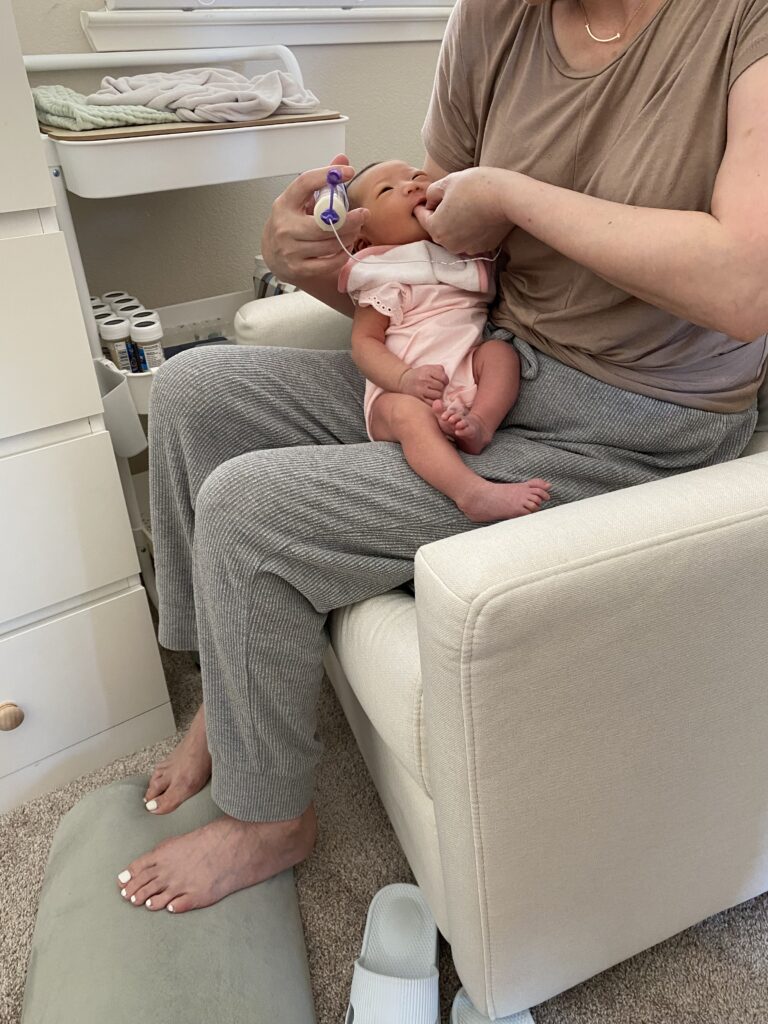
What’s The Extra Help Worth to You?
That’s something to think carefully about before starting your search. Confinement nannies are very expensive but from my experience, they charge reasonably for the amount of support and attentive care they provide to the whole family, especially for first-time parents. The trend is that younger nannies tend to charge a bit more than older ones because they’re likely to have more energy to offer better care.
Our nanny charged $8600 for 26 days. She was already at our house when we came back from the hospital and she gently took our newborn out of the car seat and up to her nursery. As first-time parents, we learned so much from her about how to take care of our newborn. She taught us all the little things and nuances in taking care of baby in different situations, things that simply can’t be learned through a YouTube video, Google search, or ChatGPT!
My husband and I also got to enjoy our time with baby during her short wake windows and bond with each other as new parents instead of feeling overwhelmed and exhausted all the time. We got to adjust gradually to being new parents instead of drinking from a firehose.
Additionally, my husband and I could easily set and keep boundaries with our parents, which prevented clashes due to generational culture differences that often happen when the grandparents are deeply involved in the newborn care. They didn’t have to lose sleep every day, walk up and down the stairs carrying a baby, or strain their arms and back holding her to sleep. Because it was easier on our parents, it also meant my husband and I didn’t feel guilty about setting boundaries (for example, visiting only at specific times) or not following all the newborn care customs that they suggested. It was a win-win for all of us!
One unexpected side benefit that I loved was that I learned so much about Chinese cooking and postpartum nutrition. I will share a whole post later dedicated to postpartum nutrition to pass on everything I learned from our amazing nanny. She also cooked so well, I told her she should open up her own restaurant! My husband ate all the same meals as me and he loved them too.

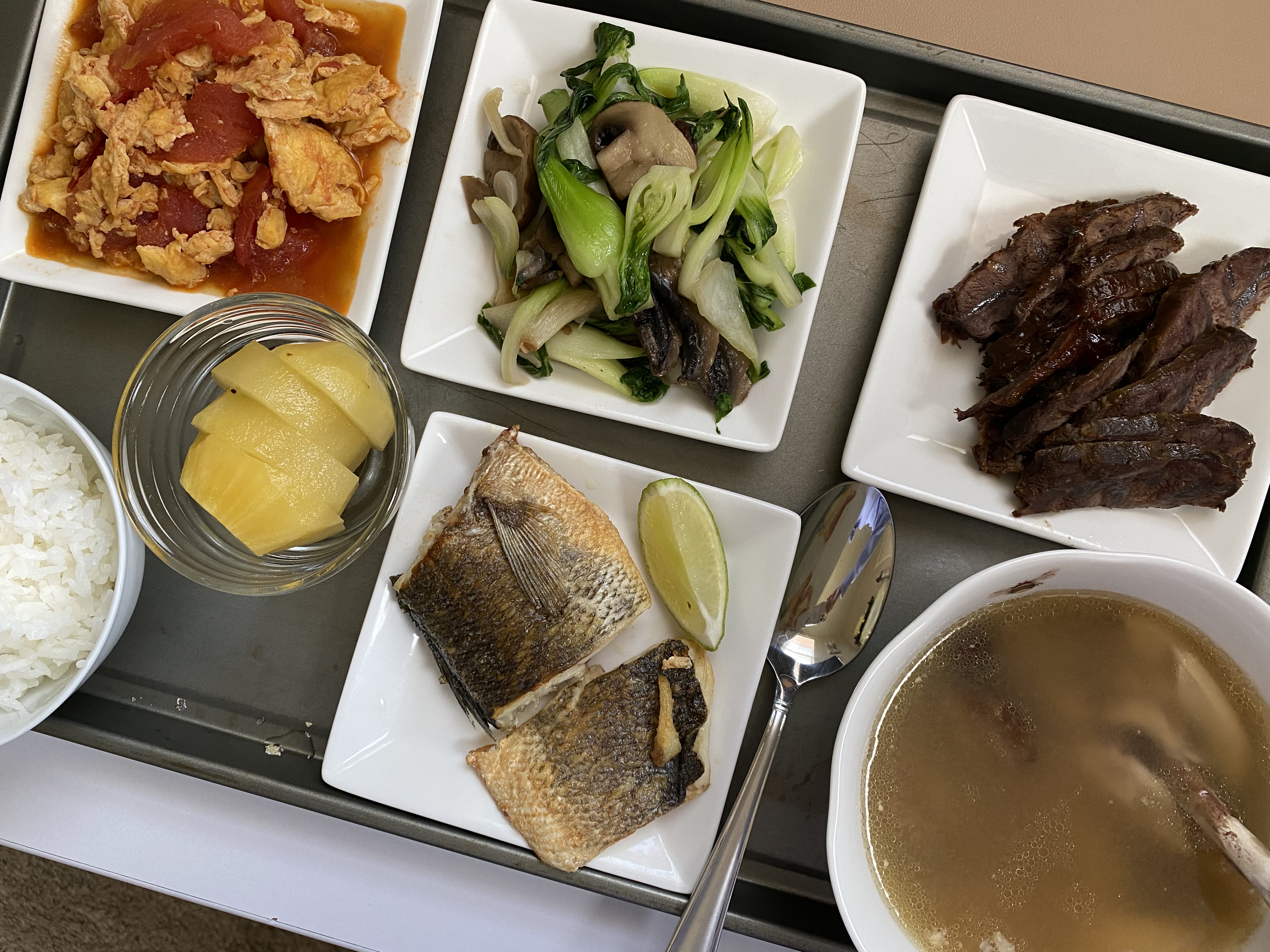
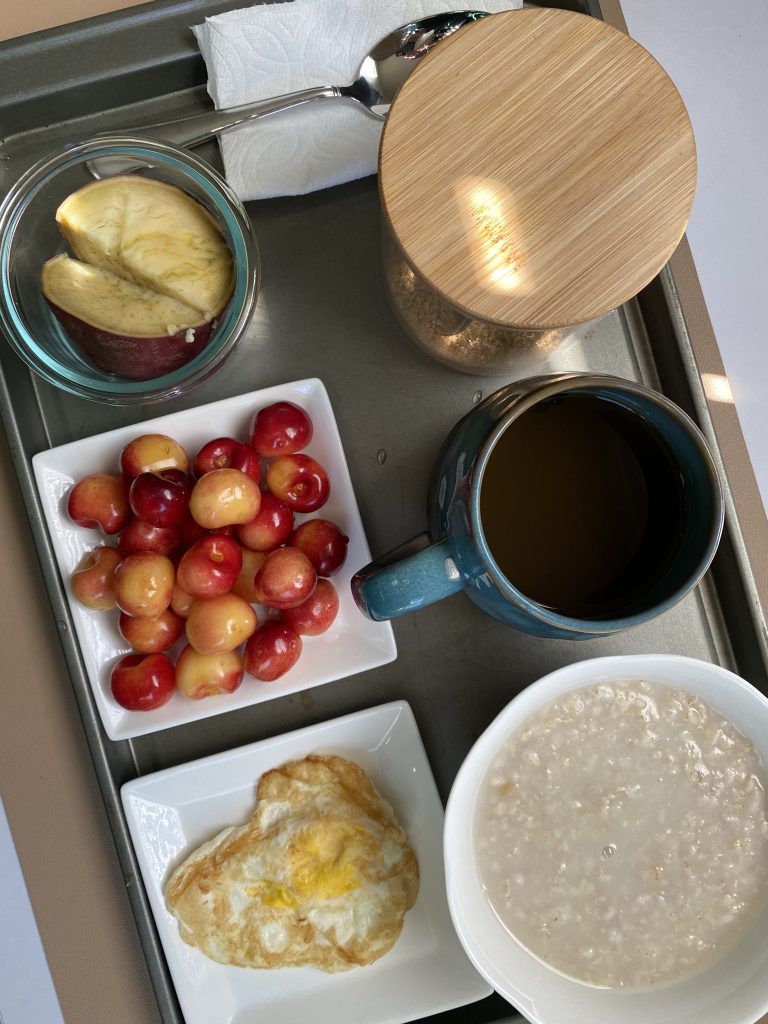
When to Book a Nanny
If you’d like to have a Chinese postpartum confinement nanny, the latest you should start looking is toward the end of your first trimester. These nannies are in high demand (at least where I live in the Bay Area, California) and the good ones get booked up very quickly. For reference, most of the good candidates we talked to were booked 5-6 months out! We were fortunate that my mom started looking for a nanny early because the good ones get booked out more than 7 months in advance.
Tips for finding a great match:
- Have at least one interview call with the candidates
- Have a list of expectations and requirements written out and share these with the nanny during the interviews. Discuss these in detail with your partner first so you cover everything that’s important to both of you
- Ask them how much experience they have specifically in the US (or the country you live in). Many used to live in China or Taiwan but things are quite different over there. You’ll want someone who is accustomed to culture and newborn healthcare in your country
- Ask a few probing questions to get a sense of how clean they themselves are around the house and how careful they are with baby hygiene (e.g., do they rinse baby’s bottom every time she poops?)
- Consider finding a slightly younger nanny, as long as you feel their years of experience is enough
And of course, remember to trust your gut and your partner’s and have plenty of open conversations as you go through the important process of choosing your confinement nanny!
